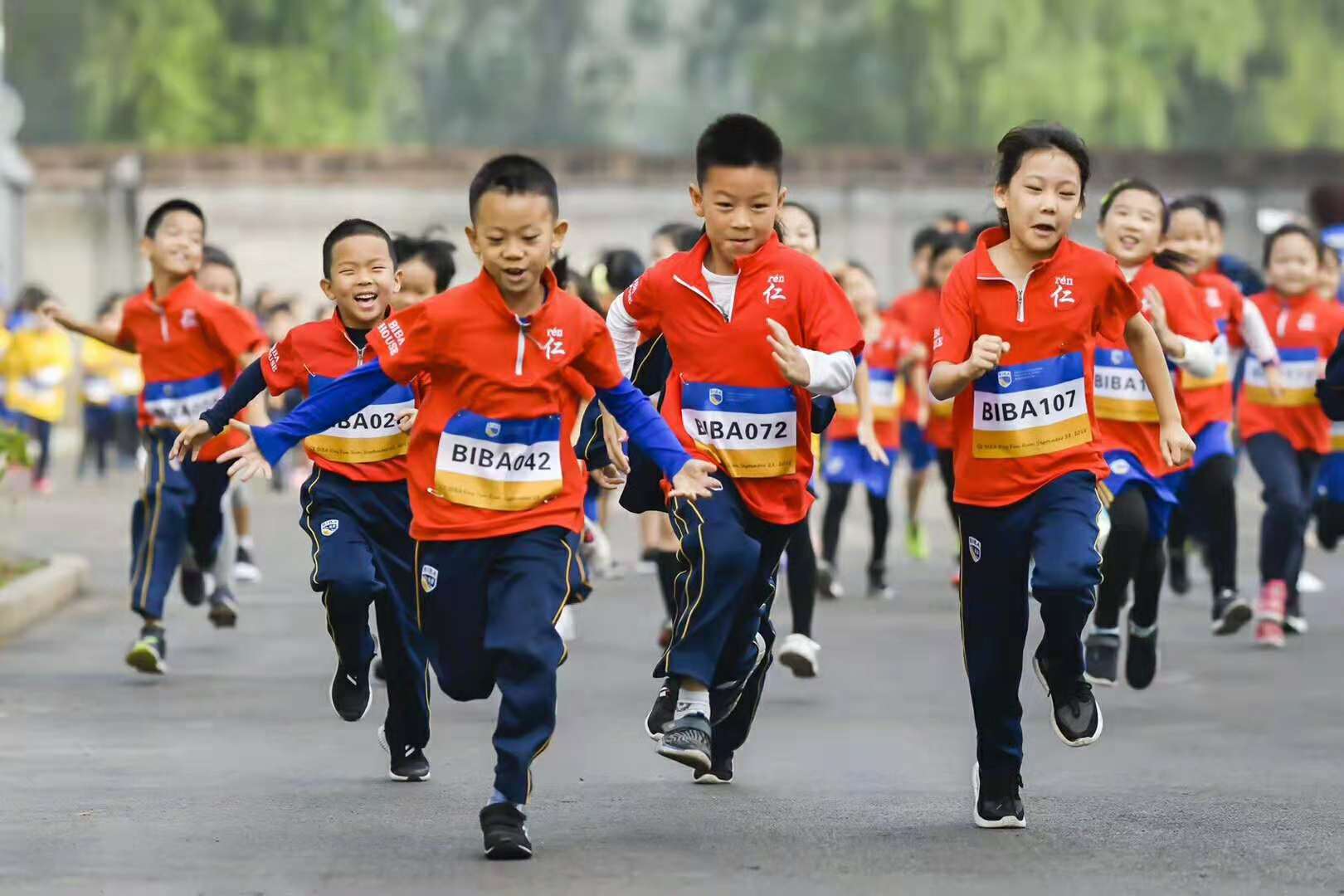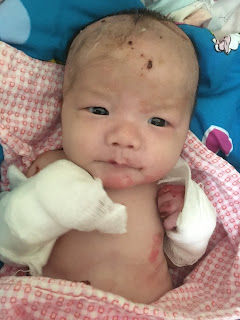Our volunteer physical therapist, April, has helped many children in our program catch up on their physical and developmental milestones. In this post, she shares of a recent transformation she witnessed in one of our newer babies, Qi.
Transformation. It is one of the things that continues to draw me to orphan work. I never grow old of seeing the degree to which optimal care and love can impact a child.
Meet little Qi.

We first met her at a train station. Some orphanage staff brought her and another baby boy to a colleague and I as we were traveling back to Beijing from one of our other projects. It was a quick handoff: two babies and a bag with a few diapers, formula, and a bottle for them to share. We knew very little about either one of them other than their names, birthdates, and that they were joining our project for further evaluation of their medical conditions; they each had visible ear deformities.
Qi didn’t love being in a baby carrier. She didn’t especially enjoy being held. She’d fuss intermittently during bottle feedings, likely frustrations related to her poor oral motor skills; more milk spilled out of her mouth than went in, and what went in easily caused her to cough or choke. She cried a decent amount that first train ride, before eventually tiring herself out and falling asleep.

Qi weighed just shy of 12 pounds when she arrived at our Beijing baby home, placing her below the 3rd percentile for her age of 6 ½ months. From a developmental perspective, Qi wasn’t doing much better; her developmental motor skills were quite delayed. Her favorite position was on her tummy, where she would rhythmically lift her legs off the surface over and over again while staring blankly into space. She wasn’t motivated to roll over. If you tried to sit her up, she was like a noodle– her trunk would completely flex over your hands. She couldn’t put any weight on her legs if you placed her in supported standing. She wasn’t crawling. She actually preferred not to be held; she’d often fuss in someone’s arms and be too content in her crib.

Given Qi’s bilateral microtia, we weren’t sure about her hearing. Her affect was generally quite flat, but it was hard to tell if this was a result of her previous environment and lack of stimulation and/or her inability to hear. After her first medical check, however, we discovered she did have some limited hearing bilaterally, although likely very muffled.

Fast forward just a few weeks and Qi has made tremendous progress! She’s more easily drinking and enjoying her bottles. She’s now 15 pounds and her entire body has started filling out. She can roll in both directions, put weight on her legs in supported standing, and sit with minimal support. She can pivot around on her tummy, has mastered army crawling, and can briefly get on her hands and knees. Her interest in toys has definitely replaced her contentment with nothing.

Qi enjoys social interaction like being talked and sung to. She is growing more engaged in her environment daily, especially now that she has her hearing aids. She’s even starting to vocalize!

My personal favorite changes in Qi– how she recognizes and smiles big when I pick her up in the mornings or how she no longer resists being held and will even crawl over when she wants to be picked up. And how she easily falls asleep in my arms.

This little one has come a long way in a short amount of time and it’s transformations like hers that keep me coming back for more. I look forward to seeing what Qi will be up to a few months from now and hopefully someday in her own forever family.























































